Doris Kearns Goodwin Lincoln Quotes & Sayings
Enjoy reading and share 40 famous quotes about Doris Kearns Goodwin Lincoln with everyone.
Top Doris Kearns Goodwin Lincoln Quotes
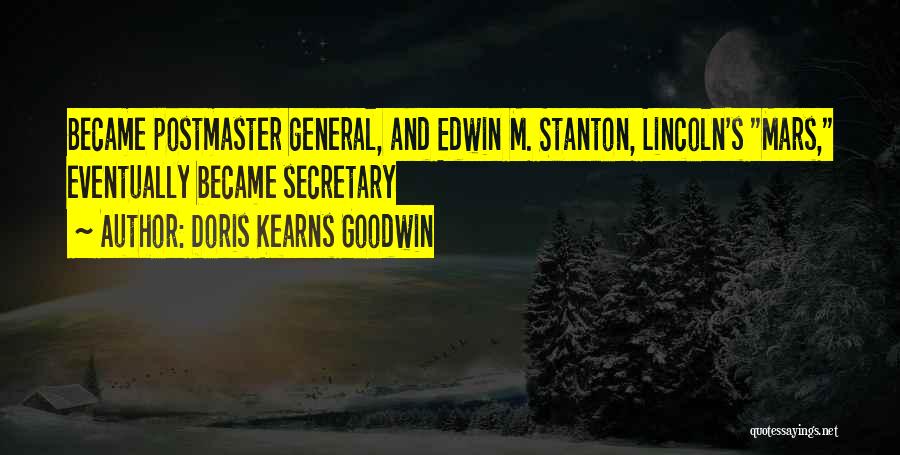
Became postmaster general, and Edwin M. Stanton, Lincoln's "Mars," eventually became secretary — Doris Kearns Goodwin

Lincoln was as calm and unruffled as the summer sea in moments of the gravest peril; — Doris Kearns Goodwin

Attempting to circumvent this declaration, Hunter recalled that Charles I of England had entered repeatedly into arrangements with his adversaries despite ongoing hostilities. "I do not profess to be posted in history," Lincoln answered. "On all such matters I will turn you over to Seward. All I distinctly recollect about the case of Charles I, is, that he lost his head in the end. — Doris Kearns Goodwin
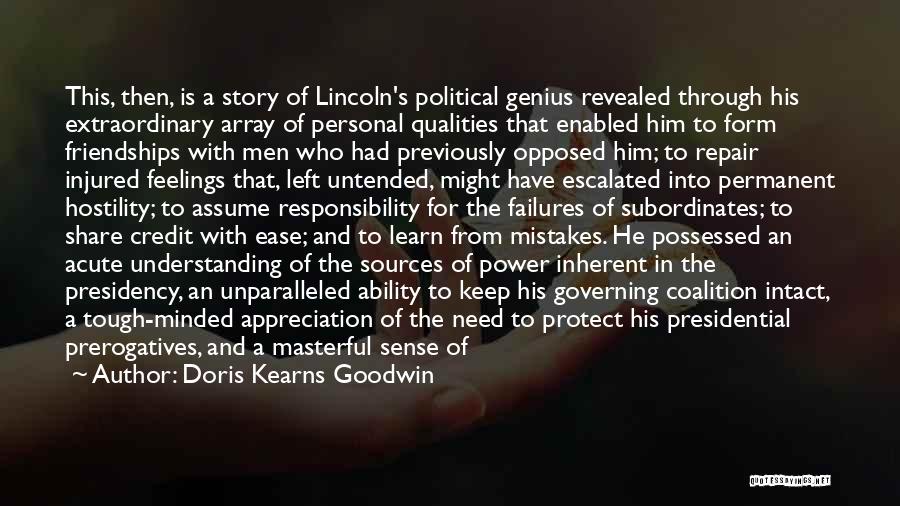
This, then, is a story of Lincoln's political genius revealed through his extraordinary array of personal qualities that enabled him to form friendships with men who had previously opposed him; to repair injured feelings that, left untended, might have escalated into permanent hostility; to assume responsibility for the failures of subordinates; to share credit with ease; and to learn from mistakes. He possessed an acute understanding of the sources of power inherent in the presidency, an unparalleled ability to keep his governing coalition intact, a tough-minded appreciation of the need to protect his presidential prerogatives, and a masterful sense of timing. — Doris Kearns Goodwin
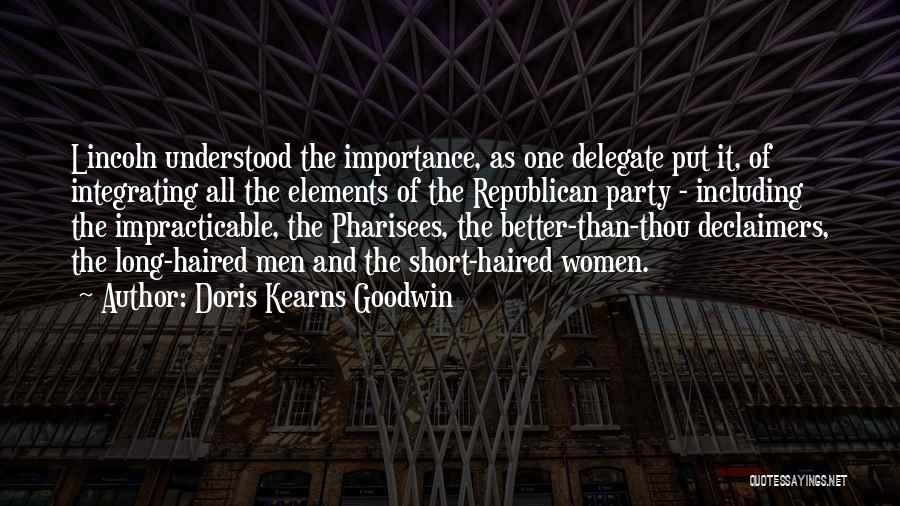
Lincoln understood the importance, as one delegate put it, of integrating all the elements of the Republican party - including the impracticable, the Pharisees, the better-than-thou declaimers, the long-haired men and the short-haired women. — Doris Kearns Goodwin
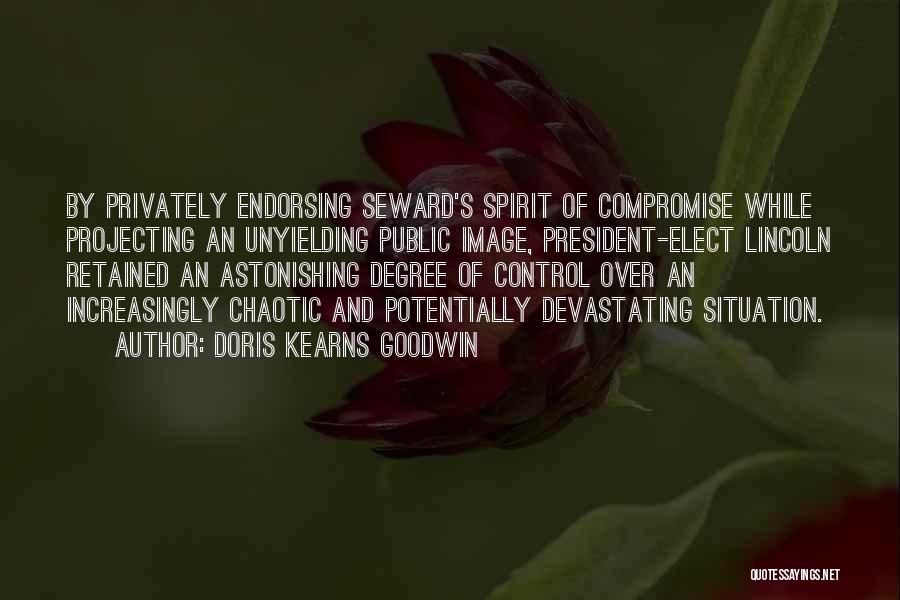
By privately endorsing Seward's spirit of compromise while projecting an unyielding public image, President-elect Lincoln retained an astonishing degree of control over an increasingly chaotic and potentially devastating situation. — Doris Kearns Goodwin
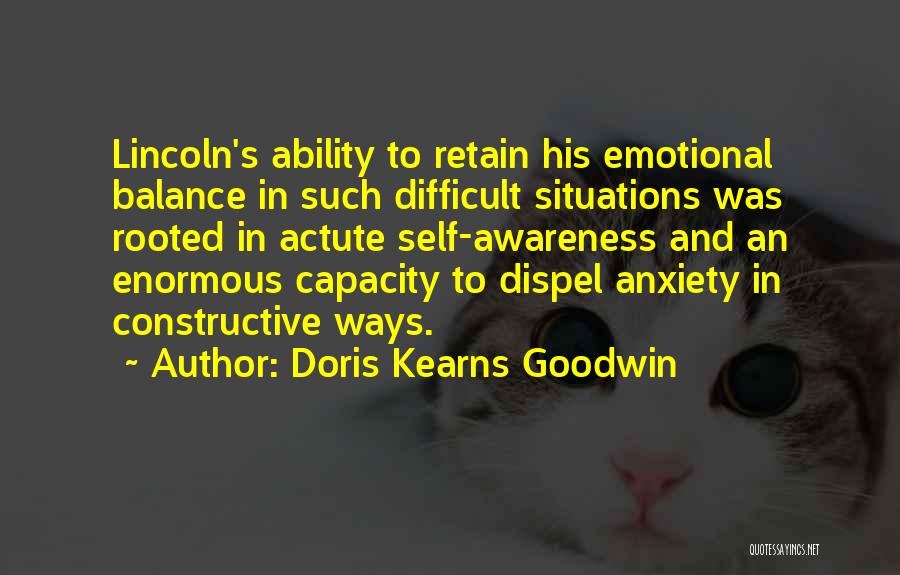
Lincoln's ability to retain his emotional balance in such difficult situations was rooted in actute self-awareness and an enormous capacity to dispel anxiety in constructive ways. — Doris Kearns Goodwin
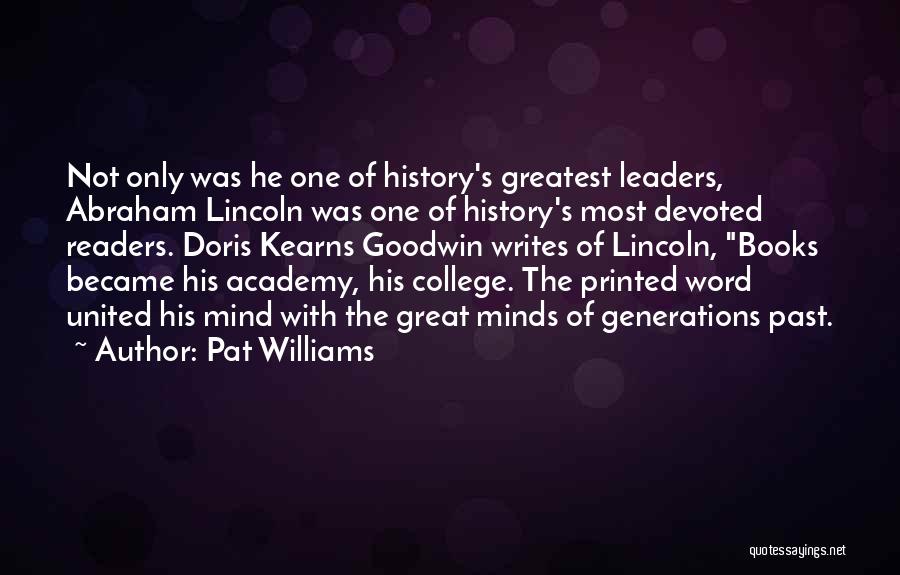
Not only was he one of history's greatest leaders, Abraham Lincoln was one of history's most devoted readers. Doris Kearns Goodwin writes of Lincoln, "Books became his academy, his college. The printed word united his mind with the great minds of generations past. — Pat Williams
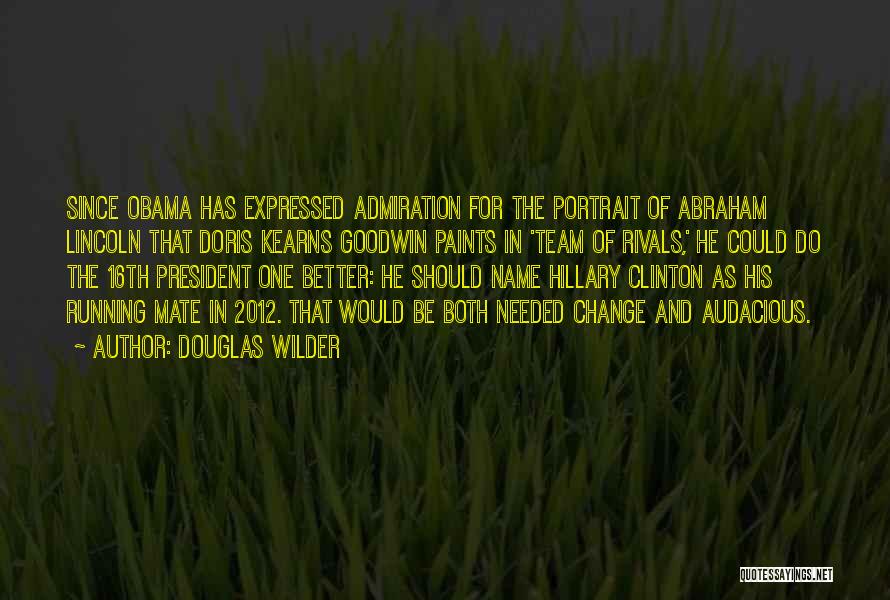
Since Obama has expressed admiration for the portrait of Abraham Lincoln that Doris Kearns Goodwin paints in 'Team of Rivals,' he could do the 16th president one better: He should name Hillary Clinton as his running mate in 2012. That would be both needed change and audacious. — Douglas Wilder
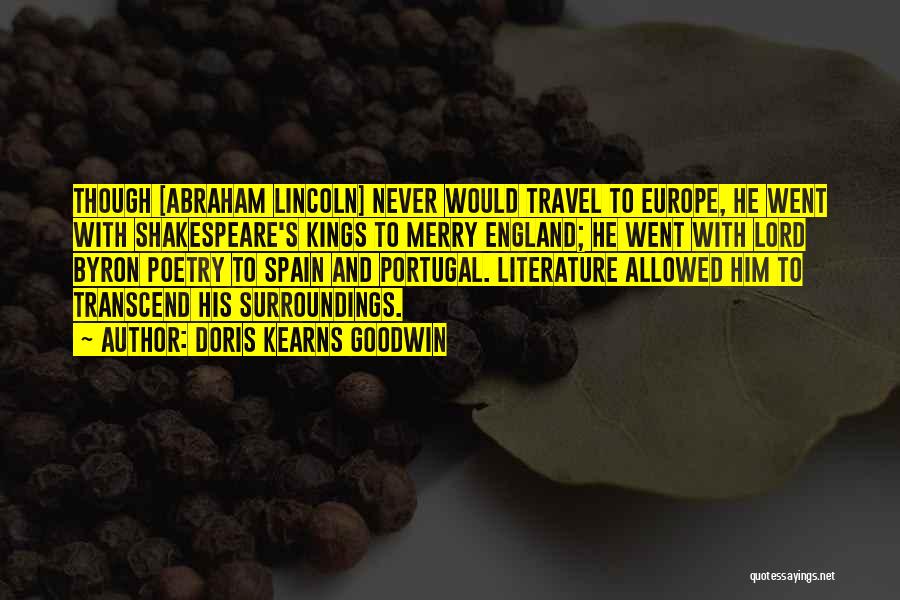
Though [Abraham Lincoln] never would travel to Europe, he went with Shakespeare's kings to Merry England; he went with Lord Byron poetry to Spain and Portugal. Literature allowed him to transcend his surroundings. — Doris Kearns Goodwin
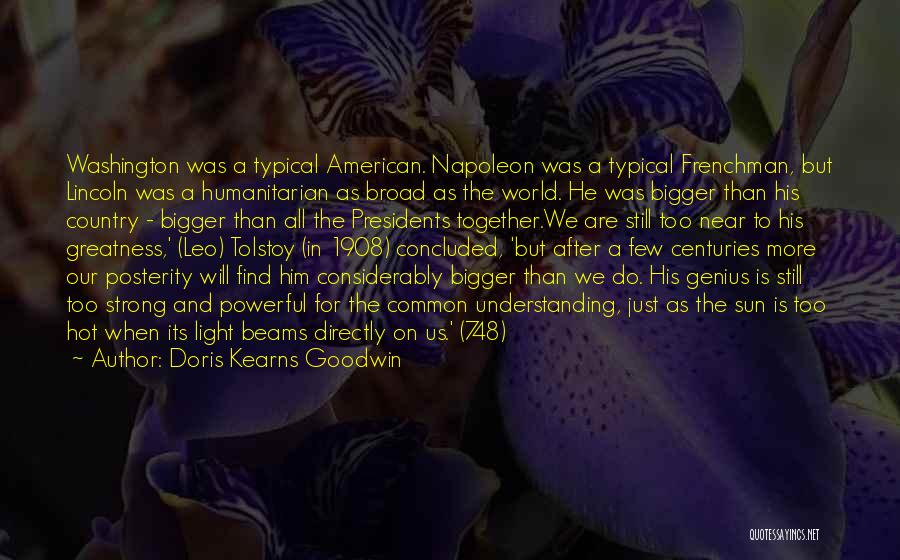
Washington was a typical American. Napoleon was a typical Frenchman, but Lincoln was a humanitarian as broad as the world. He was bigger than his country - bigger than all the Presidents together.
We are still too near to his greatness,' (Leo) Tolstoy (in 1908) concluded, 'but after a few centuries more our posterity will find him considerably bigger than we do. His genius is still too strong and powerful for the common understanding, just as the sun is too hot when its light beams directly on us.' (748) — Doris Kearns Goodwin
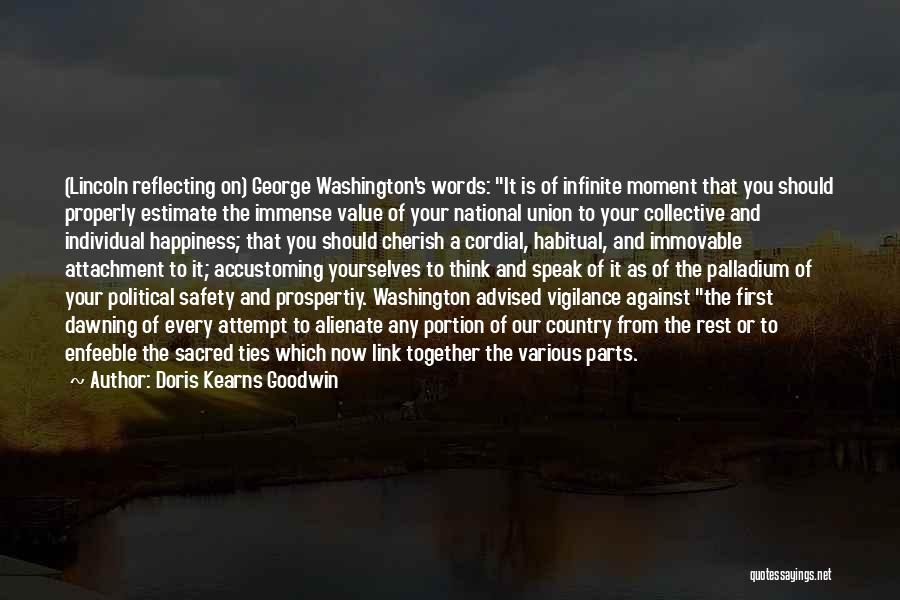
(Lincoln reflecting on) George Washington's words: "It is of infinite moment that you should properly estimate the immense value of your national union to your collective and individual happiness; that you should cherish a cordial, habitual, and immovable attachment to it; accustoming yourselves to think and speak of it as of the palladium of your political safety and prospertiy. Washington advised vigilance against "the first dawning of every attempt to alienate any portion of our country from the rest or to enfeeble the sacred ties which now link together the various parts. — Doris Kearns Goodwin
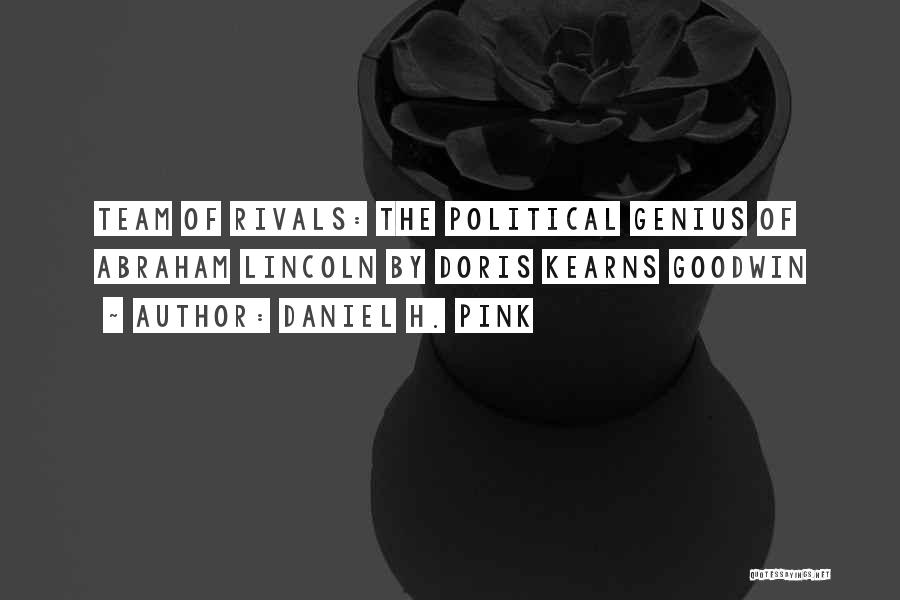
Team of Rivals: The Political Genius of Abraham Lincoln BY DORIS KEARNS GOODWIN — Daniel H. Pink
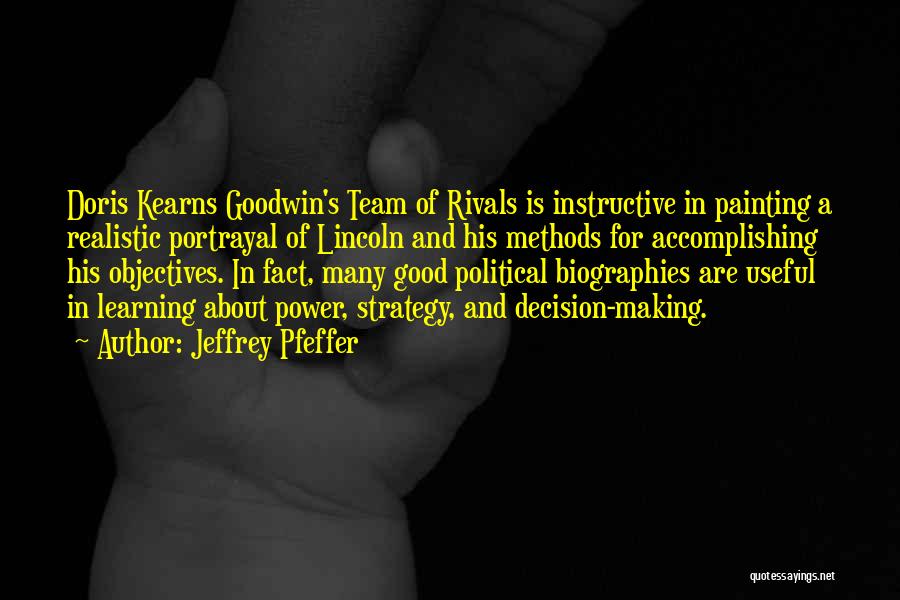
Doris Kearns Goodwin's Team of Rivals is instructive in painting a realistic portrayal of Lincoln and his methods for accomplishing his objectives. In fact, many good political biographies are useful in learning about power, strategy, and decision-making. — Jeffrey Pfeffer
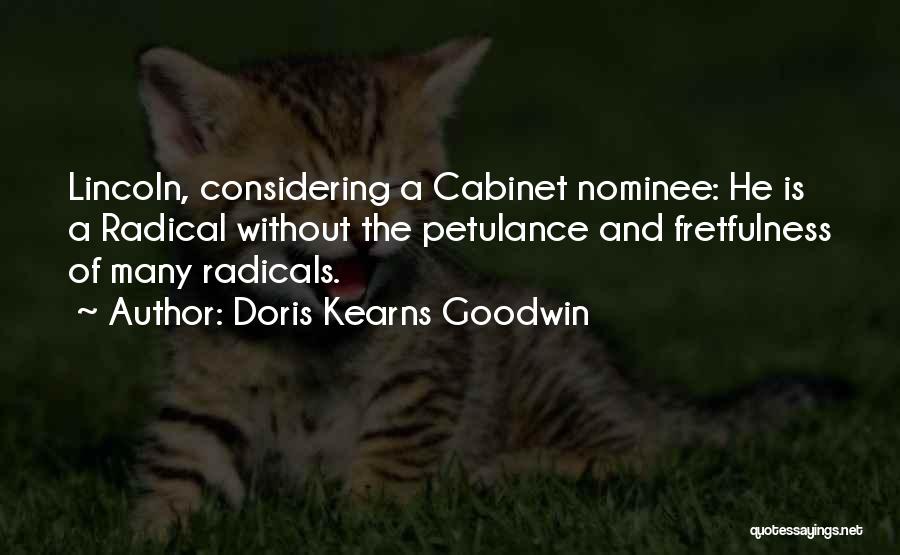
Lincoln, considering a Cabinet nominee: He is a Radical without the petulance and fretfulness of many radicals. — Doris Kearns Goodwin
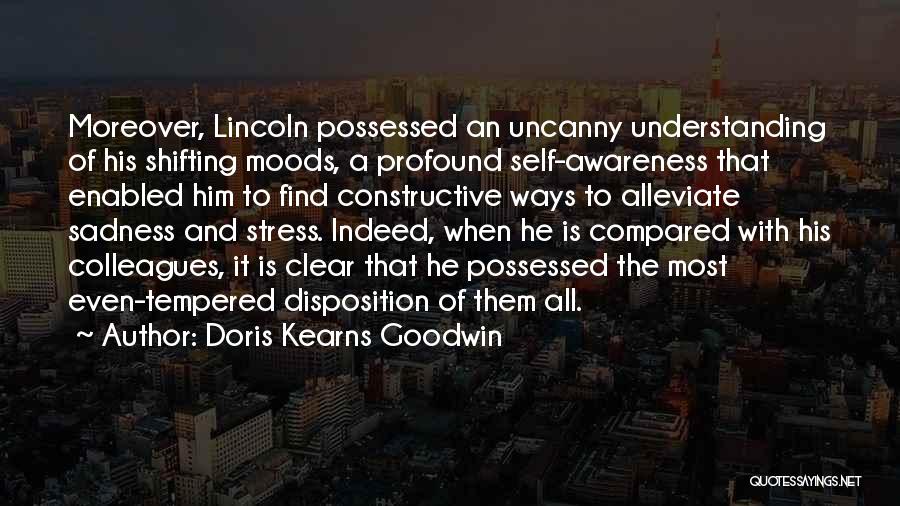
Moreover, Lincoln possessed an uncanny understanding of his shifting moods, a profound self-awareness that enabled him to find constructive ways to alleviate sadness and stress. Indeed, when he is compared with his colleagues, it is clear that he possessed the most even-tempered disposition of them all. — Doris Kearns Goodwin
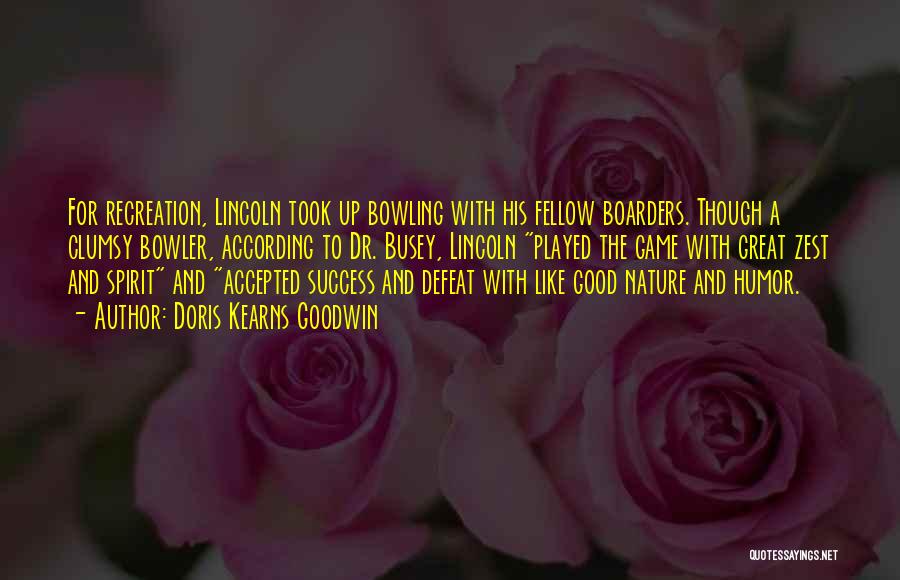
For recreation, Lincoln took up bowling with his fellow boarders. Though a clumsy bowler, according to Dr. Busey, Lincoln "played the game with great zest and spirit" and "accepted success and defeat with like good nature and humor. — Doris Kearns Goodwin
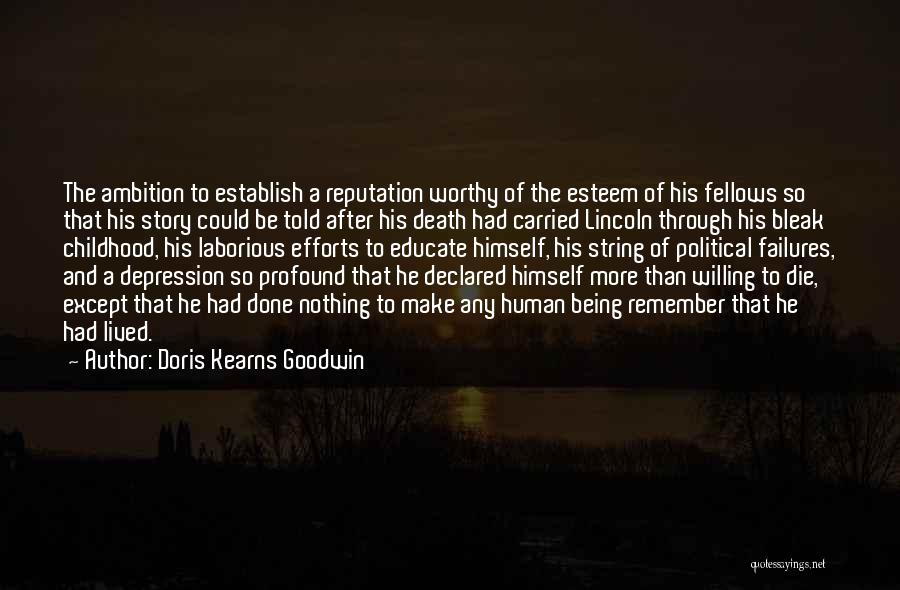
The ambition to establish a reputation worthy of the esteem of his fellows so that his story could be told after his death had carried Lincoln through his bleak childhood, his laborious efforts to educate himself, his string of political failures, and a depression so profound that he declared himself more than willing to die, except that he had done nothing to make any human being remember that he had lived. — Doris Kearns Goodwin
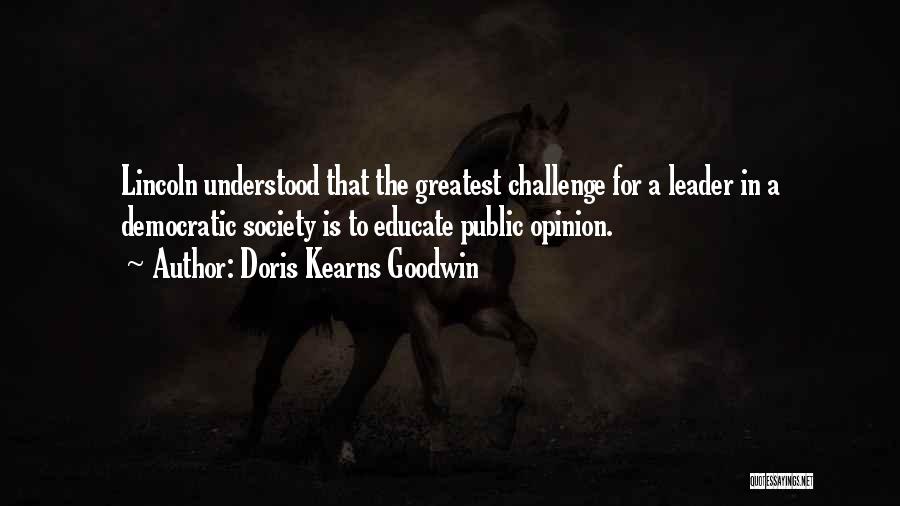
Lincoln understood that the greatest challenge for a leader in a democratic society is to educate public opinion. — Doris Kearns Goodwin
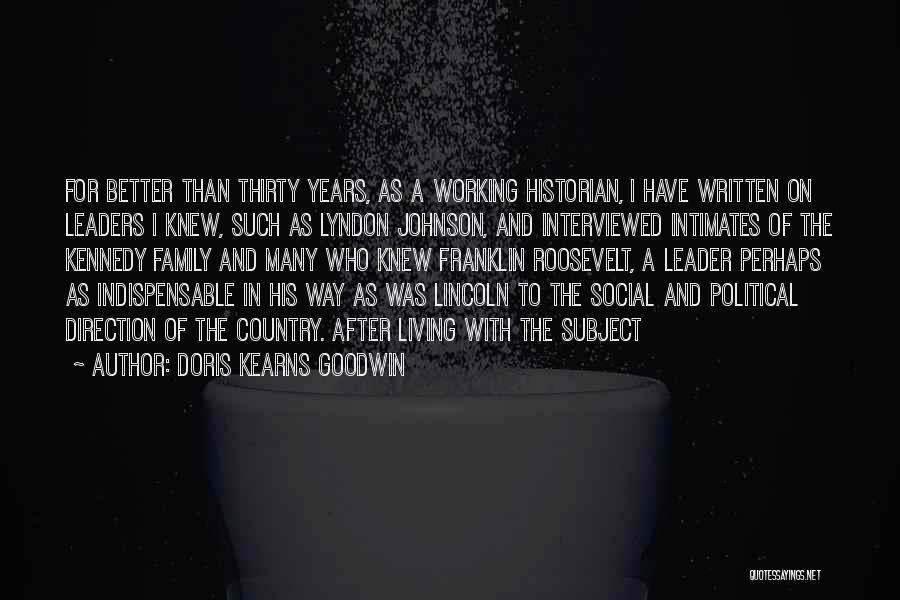
For better than thirty years, as a working historian, I have written on leaders I knew, such as Lyndon Johnson, and interviewed intimates of the Kennedy family and many who knew Franklin Roosevelt, a leader perhaps as indispensable in his way as was Lincoln to the social and political direction of the country. After living with the subject — Doris Kearns Goodwin
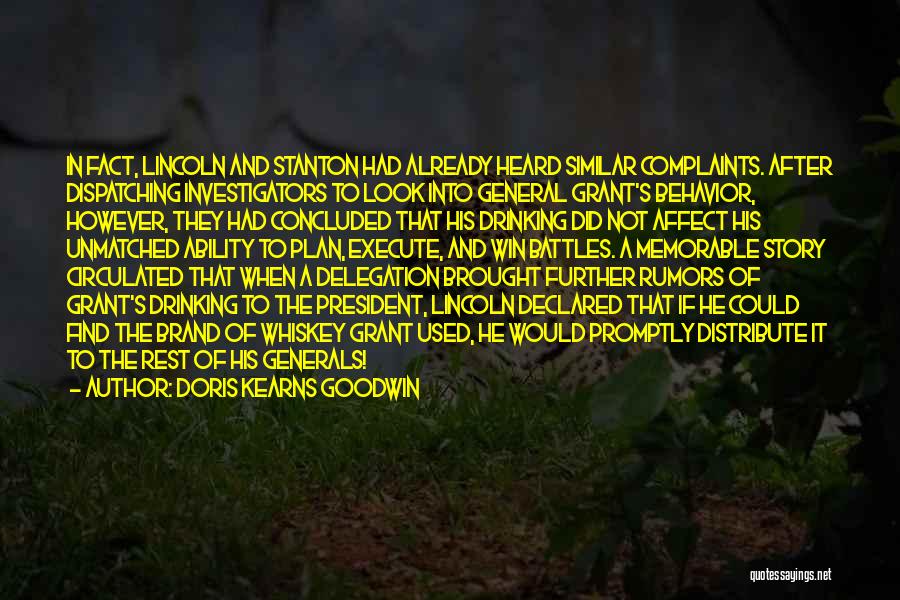
In fact, Lincoln and Stanton had already heard similar complaints. After dispatching investigators to look into General Grant's behavior, however, they had concluded that his drinking did not affect his unmatched ability to plan, execute, and win battles. A memorable story circulated that when a delegation brought further rumors of Grant's drinking to the president, Lincoln declared that if he could find the brand of whiskey Grant used, he would promptly distribute it to the rest of his generals! — Doris Kearns Goodwin
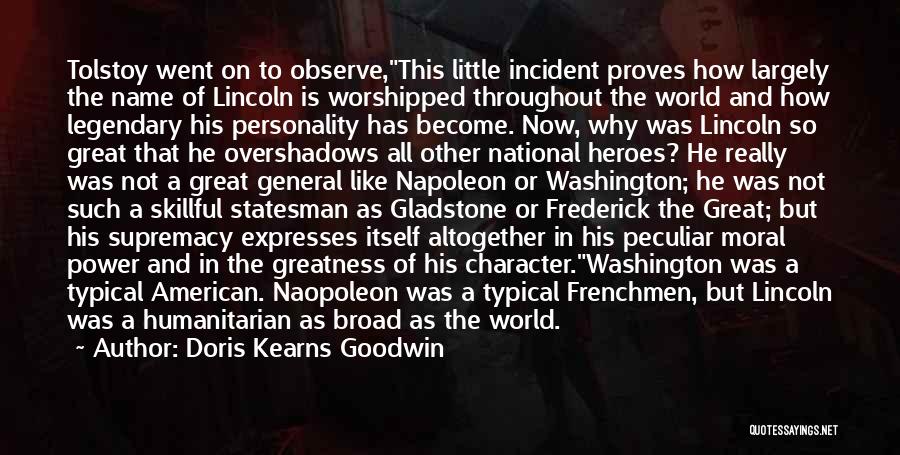
Tolstoy went on to observe,"This little incident proves how largely the name of Lincoln is worshipped throughout the world and how legendary his personality has become. Now, why was Lincoln so great that he overshadows all other national heroes? He really was not a great general like Napoleon or Washington; he was not such a skillful statesman as Gladstone or Frederick the Great; but his supremacy expresses itself altogether in his peculiar moral power and in the greatness of his character.
"Washington was a typical American. Naopoleon was a typical Frenchmen, but Lincoln was a humanitarian as broad as the world. He was bigger than his country
bigger than all the Presidents t,ogether. We are still too near to his greatness, " Tolstoy concluded, "but after a few centuries more our posterity will find him considerably bigger than we do. His genius is still too strong and too powerful for the common understanding, just as the sun is too hot when it's light beams directly on us. — Doris Kearns Goodwin
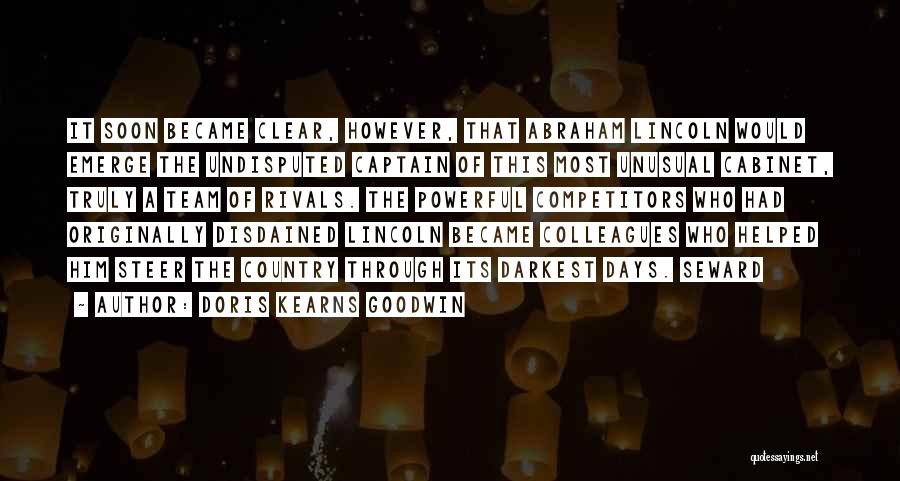
It soon became clear, however, that Abraham Lincoln would emerge the undisputed captain of this most unusual cabinet, truly a team of rivals. The powerful competitors who had originally disdained Lincoln became colleagues who helped him steer the country through its darkest days. Seward — Doris Kearns Goodwin
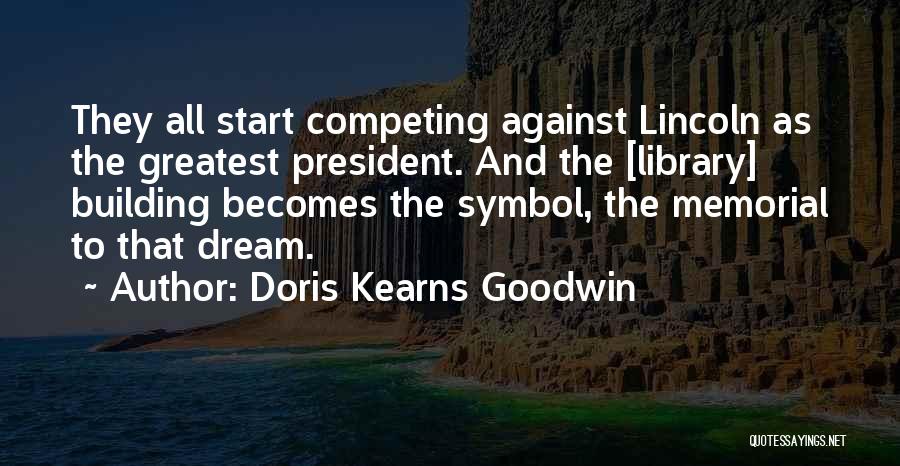
They all start competing against Lincoln as the greatest president. And the [library] building becomes the symbol, the memorial to that dream. — Doris Kearns Goodwin
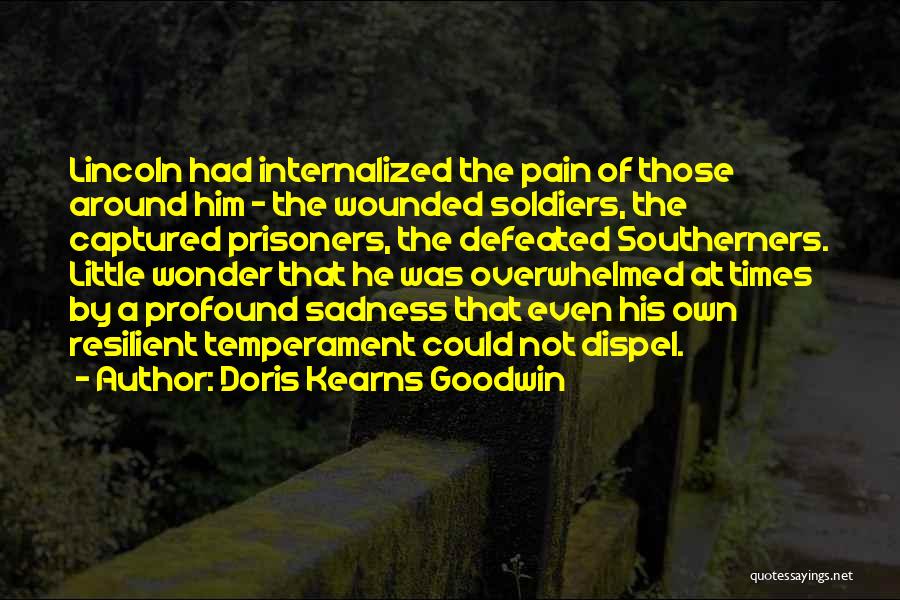
Lincoln had internalized the pain of those around him - the wounded soldiers, the captured prisoners, the defeated Southerners. Little wonder that he was overwhelmed at times by a profound sadness that even his own resilient temperament could not dispel. — Doris Kearns Goodwin
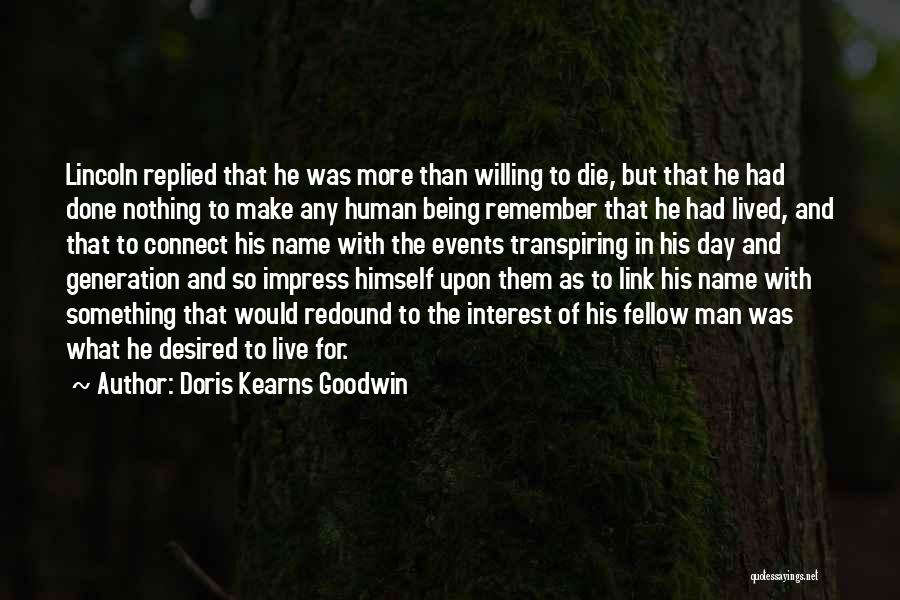
Lincoln replied that he was more than willing to die, but that he had done nothing to make any human being remember that he had lived, and that to connect his name with the events transpiring in his day and generation and so impress himself upon them as to link his name with something that would redound to the interest of his fellow man was what he desired to live for. — Doris Kearns Goodwin
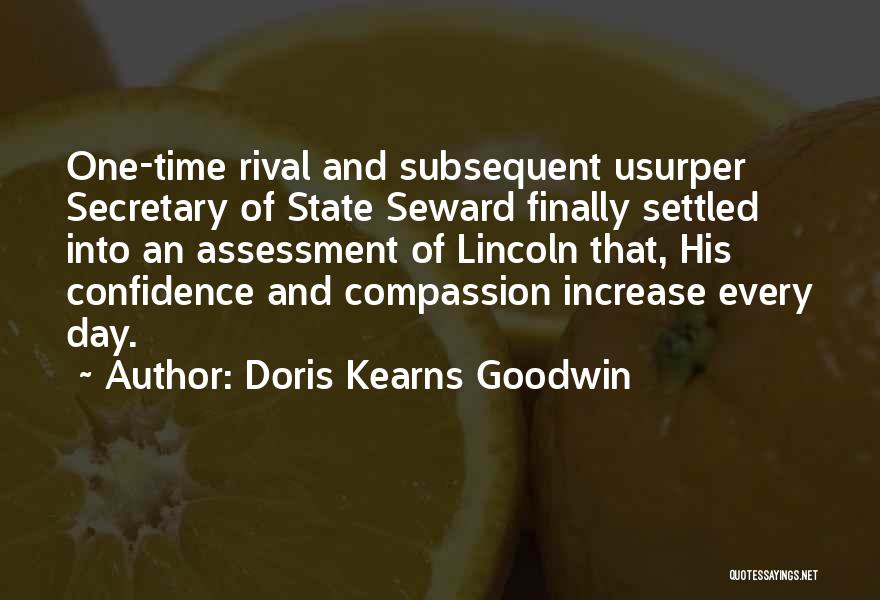
One-time rival and subsequent usurper Secretary of State Seward finally settled into an assessment of Lincoln that, His confidence and compassion increase every day. — Doris Kearns Goodwin

The histories and tragedies of Shakespeare that Lincoln loved most dealt with themes that would resonate to a president in the midst of civil war: political intrigue, the burdens of power, the nature of ambition, the relationship of leaders to those they governed. The plays illuminated with stark beauty the dire consequences of civil strife, the evils wrought by jealousy and disloyalty, the emotions evoked by the death of a child, the sundering of family ties or love of country. — Doris Kearns Goodwin
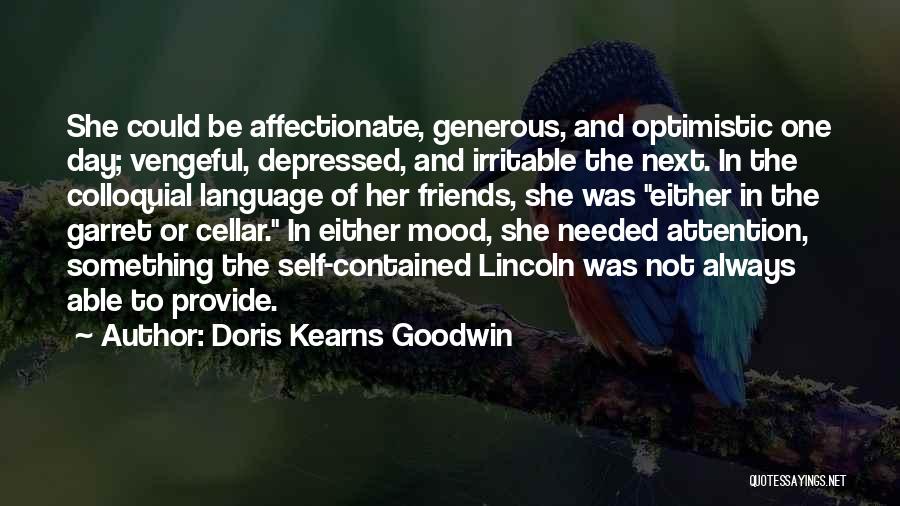
She could be affectionate, generous, and optimistic one day; vengeful, depressed, and irritable the next. In the colloquial language of her friends, she was "either in the garret or cellar." In either mood, she needed attention, something the self-contained Lincoln was not always able to provide. — Doris Kearns Goodwin
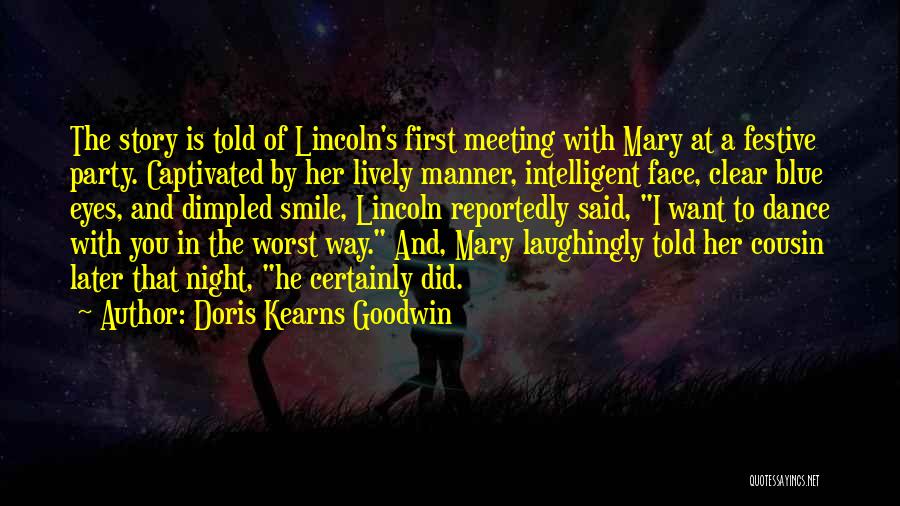
The story is told of Lincoln's first meeting with Mary at a festive party. Captivated by her lively manner, intelligent face, clear blue eyes, and dimpled smile, Lincoln reportedly said, "I want to dance with you in the worst way." And, Mary laughingly told her cousin later that night, "he certainly did. — Doris Kearns Goodwin
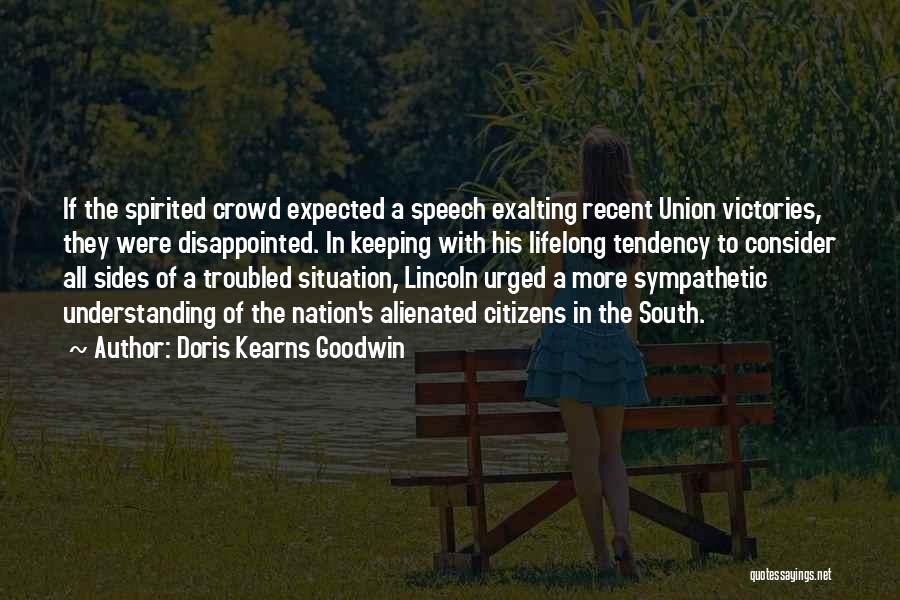
If the spirited crowd expected a speech exalting recent Union victories, they were disappointed. In keeping with his lifelong tendency to consider all sides of a troubled situation, Lincoln urged a more sympathetic understanding of the nation's alienated citizens in the South. — Doris Kearns Goodwin
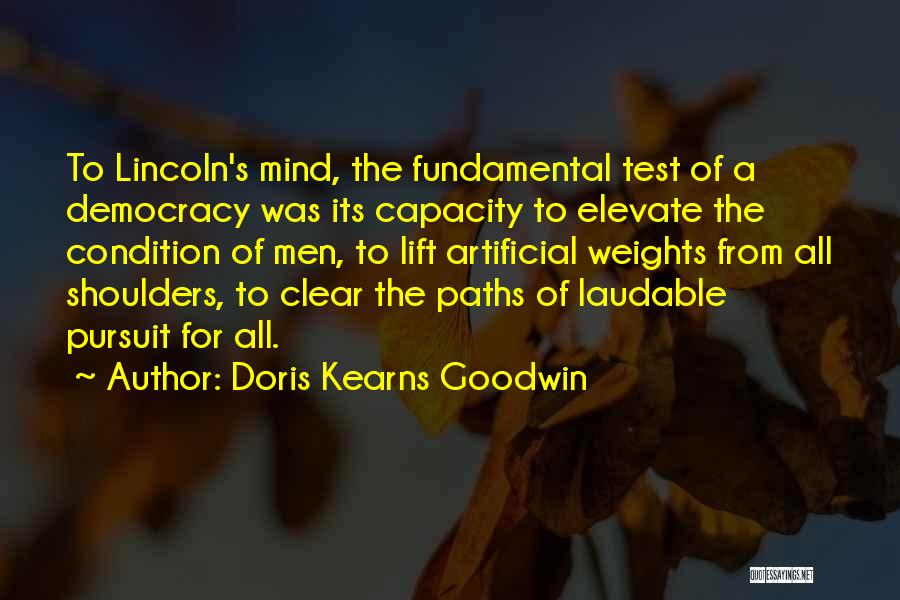
To Lincoln's mind, the fundamental test of a democracy was its capacity to elevate the condition of men, to lift artificial weights from all shoulders, to clear the paths of laudable pursuit for all. — Doris Kearns Goodwin
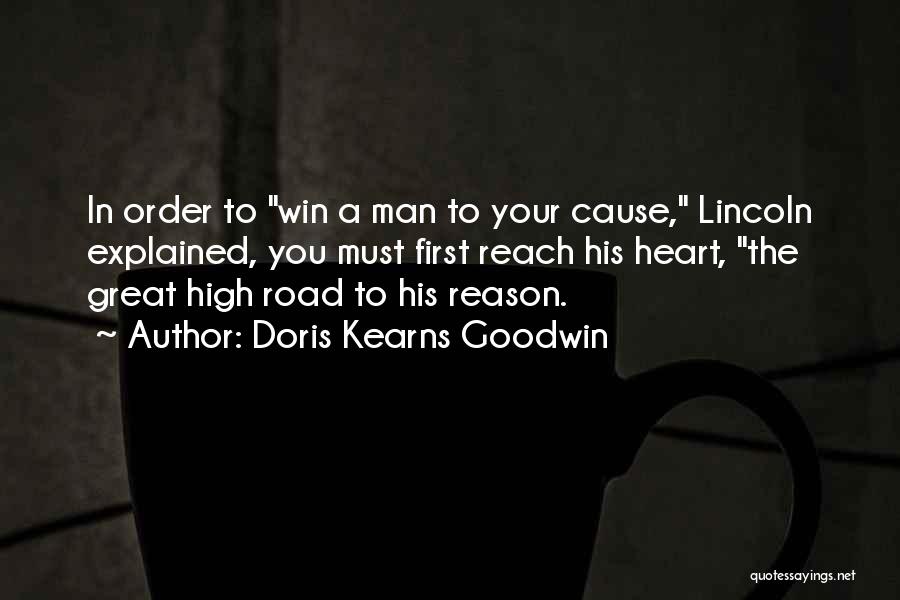
In order to "win a man to your cause," Lincoln explained, you must first reach his heart, "the great high road to his reason. — Doris Kearns Goodwin
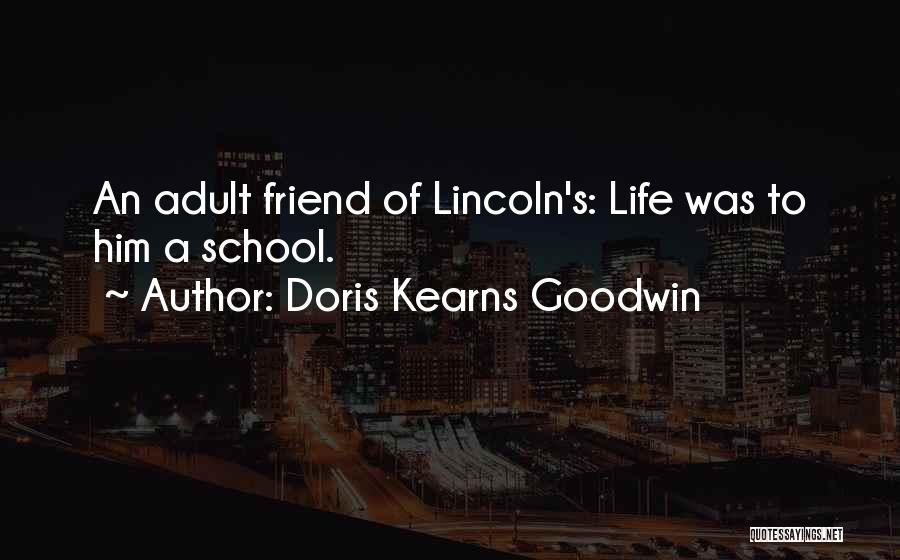
An adult friend of Lincoln's: Life was to him a school. — Doris Kearns Goodwin
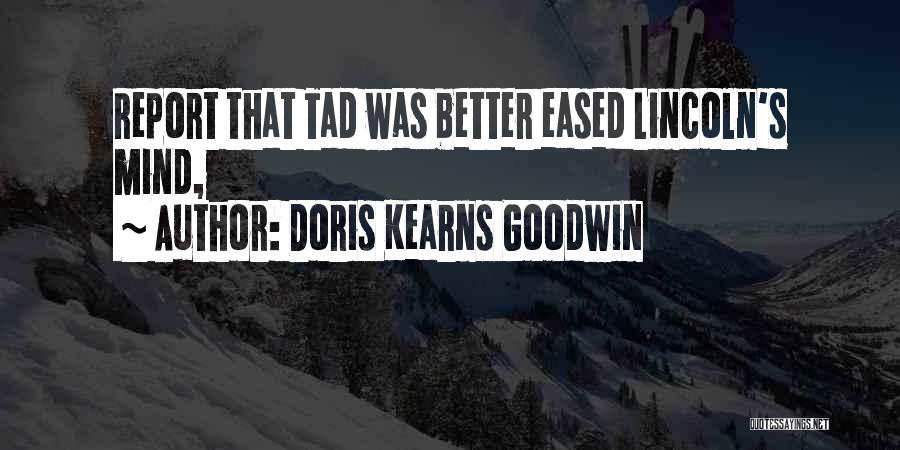
Report that Tad was better eased Lincoln's mind, — Doris Kearns Goodwin
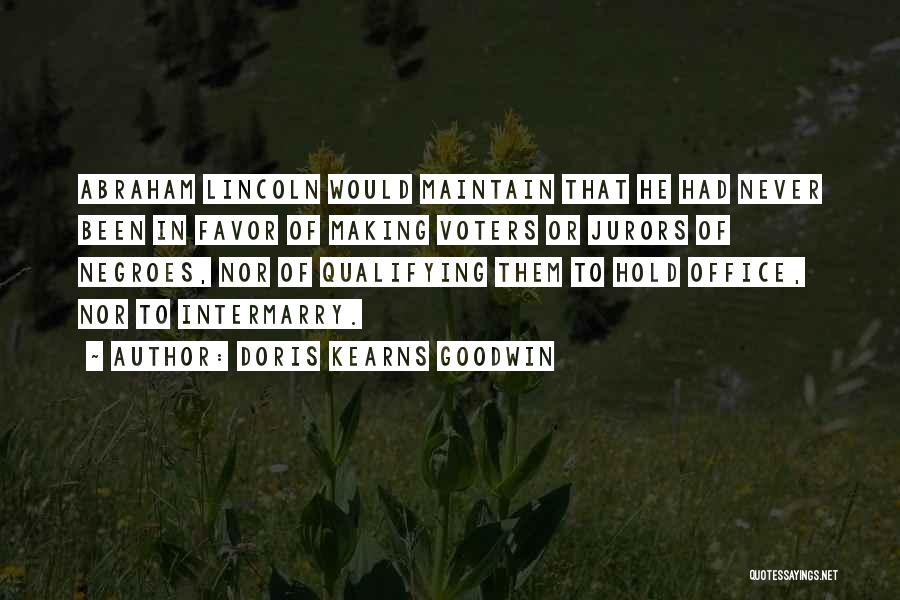
Abraham Lincoln would maintain that he had never been in favor of making voters or jurors of negroes, nor of qualifying them to hold office, nor to intermarry. — Doris Kearns Goodwin
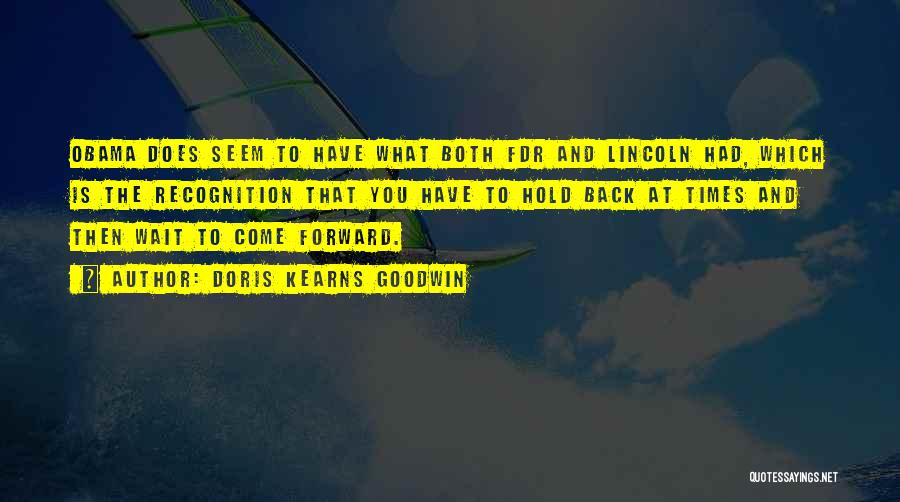
Obama does seem to have what both FDR and Lincoln had, which is the recognition that you have to hold back at times and then wait to come forward. — Doris Kearns Goodwin
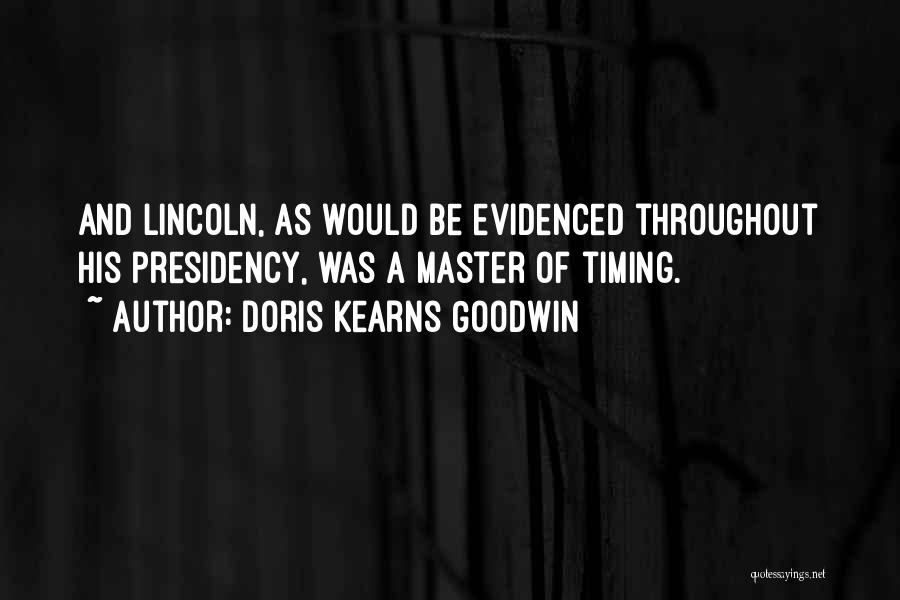
And Lincoln, as would be evidenced throughout his presidency, was a master of timing. — Doris Kearns Goodwin
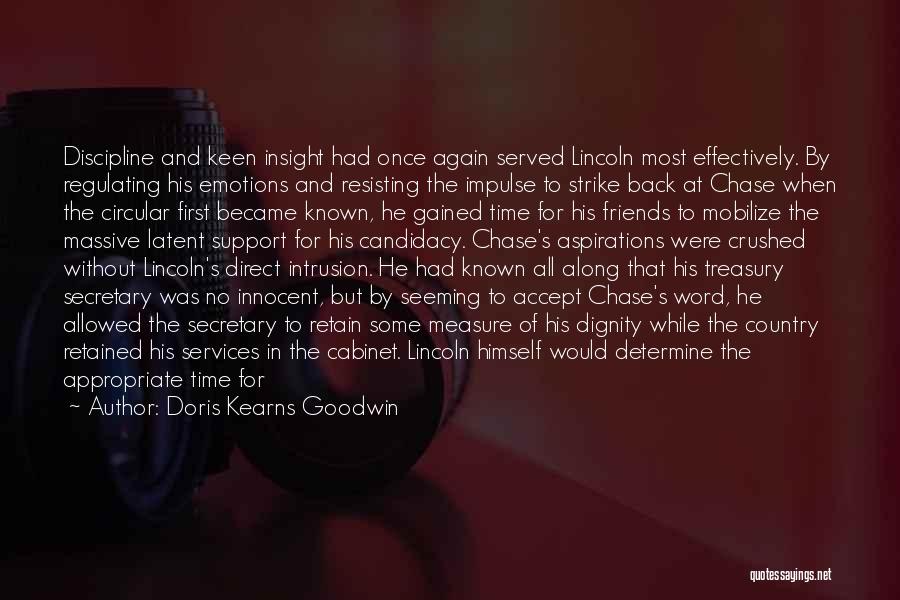
Discipline and keen insight had once again served Lincoln most effectively. By regulating his emotions and resisting the impulse to strike back at Chase when the circular first became known, he gained time for his friends to mobilize the massive latent support for his candidacy. Chase's aspirations were crushed without Lincoln's direct intrusion. He had known all along that his treasury secretary was no innocent, but by seeming to accept Chase's word, he allowed the secretary to retain some measure of his dignity while the country retained his services in the cabinet. Lincoln himself would determine the appropriate time for Chase's departure. — Doris Kearns Goodwin
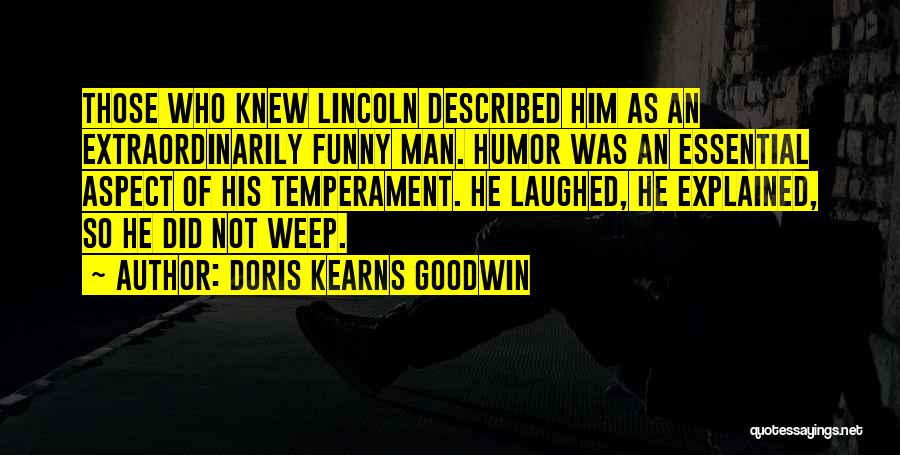
Those who knew Lincoln described him as an extraordinarily funny man. Humor was an essential aspect of his temperament. He laughed, he explained, so he did not weep. — Doris Kearns Goodwin





